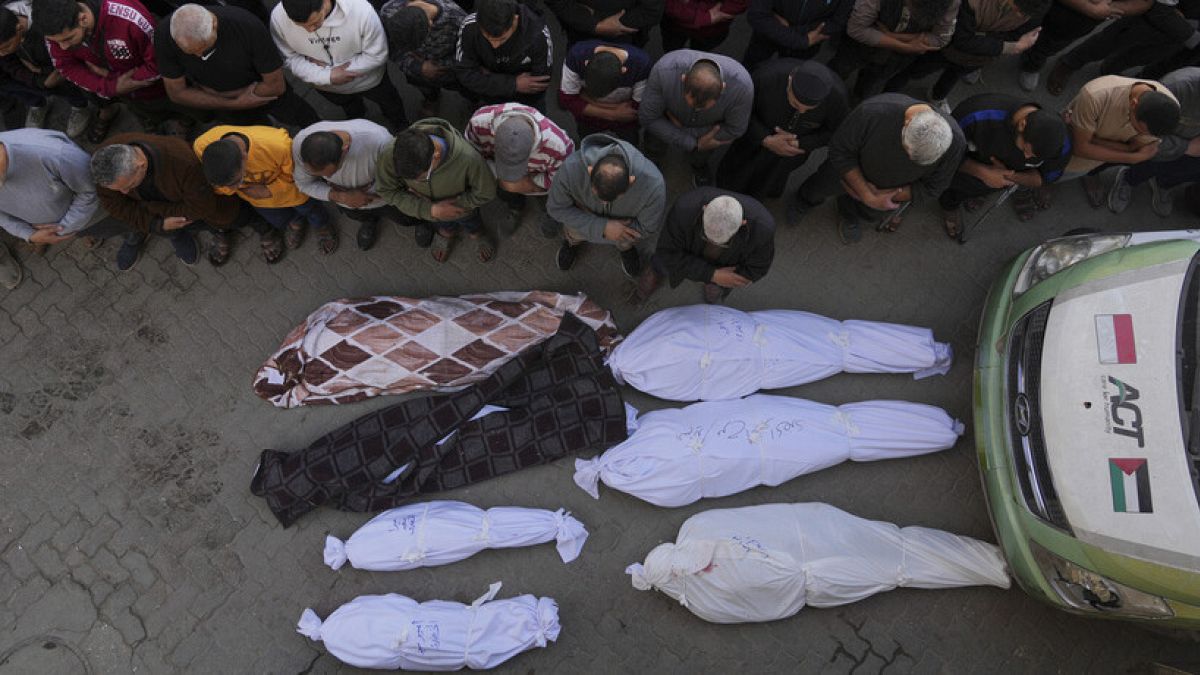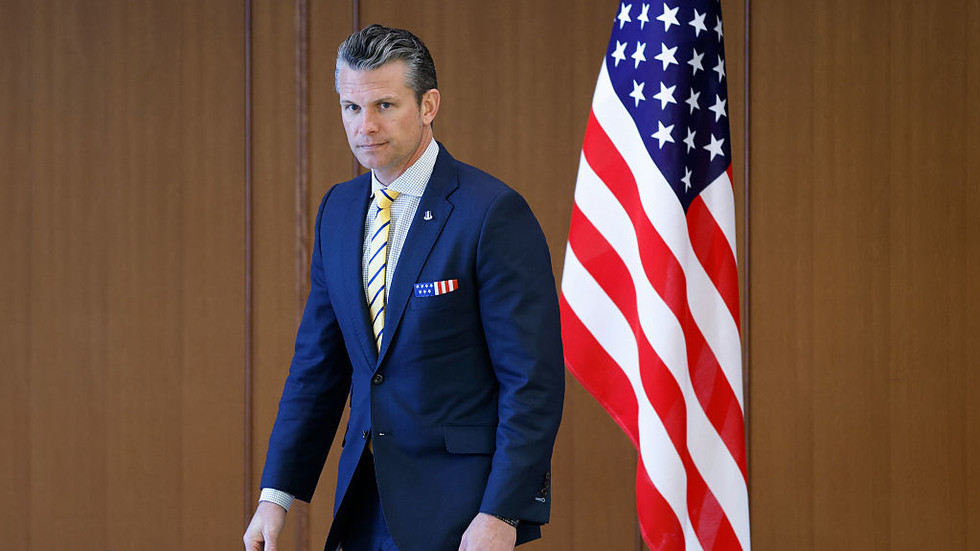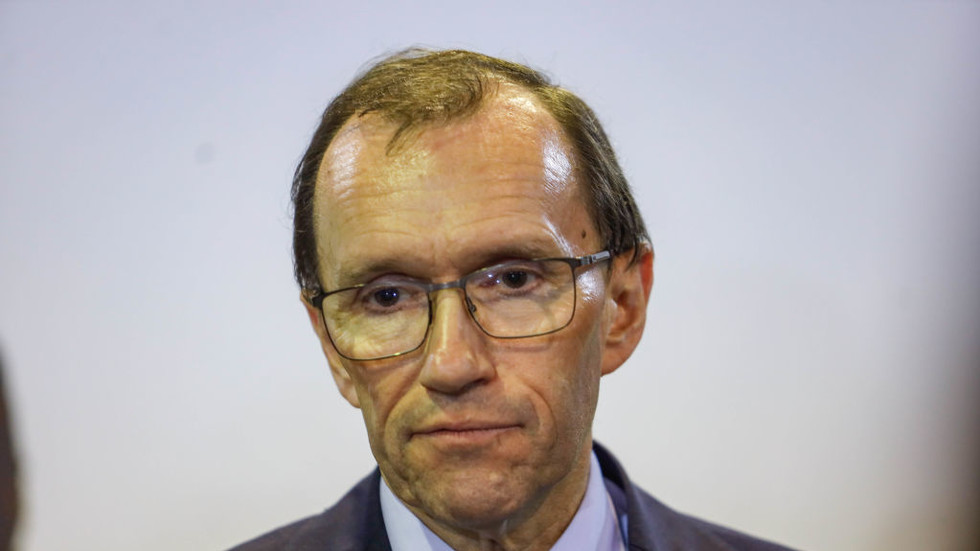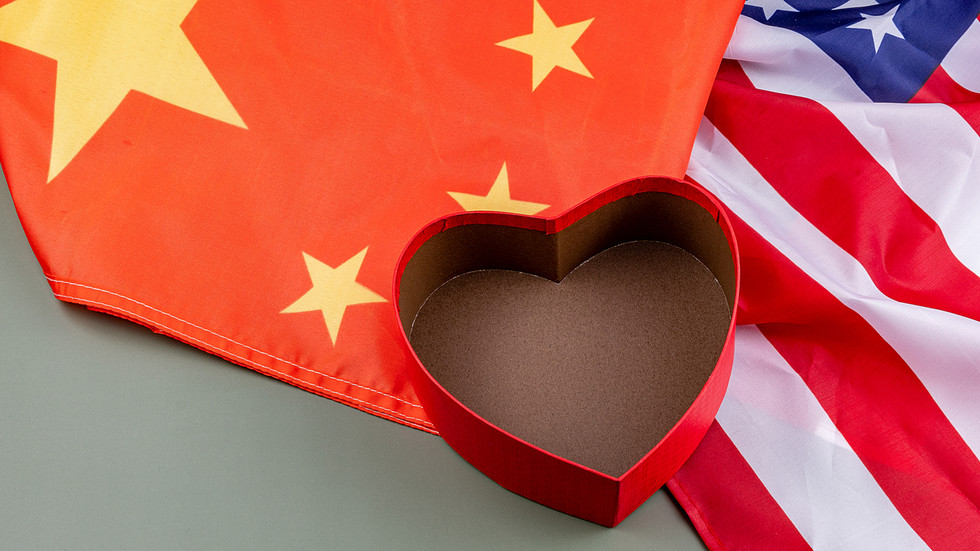The ship, expected to arrive at the port of Shengjin on Thursday morning, left Lampedusa with only eight asylum seekers after judges in Catania and Rome rejected the Meloni government's decree on 'safe countries' last Monday.
The clash between Italy's judiciary and the government over migrants continues. A court in Catania on Monday rejected the government's decree on "safe countries," before eight asylum seekers were sent to Albania on board the Italian ship 'Libra' on Wednesday morning.
The navy patrol vessel is scheduled to arrive at the port of Shengjin, on Albania's northern coast, on Thursday morning. The migrants will then be transferred to the repatriation centre in Gjader. Interior Minister Matteo Piantedosi said on Wednesday that the decision to transfer the small number of people was conducted using "very strict operational procedures."
The news comes two days after judges in Catania and Rome ruled on the Meloni government's "safe countries" decree.
The Court of Catania did not validate the detention of three Egyptian and two Bangladeshi citizens who arrived in Pozzallo. The head of Catania's court, Massimo Escher, said that the list of safe countries drawn up by the government on 21 October "does not stop the judiciary from fulfilling its obligation to verify the consistency of such a move with European law," given the accelerated nature of the procedure that processes asylum seeker applications.
The Court of Justice of the European Court (CJEU) ruled on 4 October that many of the countries listed by Italy could not be considered fully safe. It pointed out that that Egypt cannot be considered safe given that serious human rights violations occur in the North African country, such as the death penalty, systematic torture by police, as well as violence and discrimination against women and minors.
But the Catania decision was not the only setback for the government. The Court of Rome suspended the denial of the asylum application of one of 12 migrants who had been transferred to Albania. The decree on 'safe countries' was then referred to the CJEU requesting an urgent response, a similar action taken by the Court of Bologna last week which questioned whether a legislator can directly designate a third country as "safe".
Political clash fuels magistrates' concern
The rejection by the judiciary triggered a backlash from the government coalition. Matteo Salvini said that "Italy is unsafe due to some communist judges who do not implement the law."
Fratelli d'Italia said that "it is up to the state to identify safe countries" and the decision of the judges of the Court of Catania appears to pursue the sole aim of hindering any actions to counter mass illegal immigration."
The president of the National Association of Magistrates, Giuseppe Santalucia, said: "This impatience with the judiciary seems to be spreading like wildfire. The judiciary must be respected for what it is, a body that is independent from the government that cannot be subject to its expectations," he added.
'Libra' departs Lampedusa with eight migrants on board
Meanwhile, the ship 'Libra' has left the waters of Lampedusa for a new migrant transfer after waiting for two days. Despite the clash with the judiciary, on Monday Interior Minister Matteo Piantedosi said he was "confident" that operations would resume.
However, the eight migrants that boarded the ship were a far cry from the expected minimum of 30 or 40 people.
Despite the continuous sightings of small boats that, thanks to the good weather and calm sea, took the central Mediterranean route towards Lampedusa, it was not possible to identify enough people eligible for the transfer, despite Minister Piantedosi's reassurances.
The migrant centre in Gjader, built under the Italy-Albania protocol, should be operational by Thursday, unless further rulings are made by the courts. The first migrant transfer occured on 16 October, with 16 people on board. Four of them returned to Italy immediately for health reasons, with the rest also returning after the Court of Rome ruled their detention was not valid, a decision that prompted Prime Minister Meloni to approve a new list of '"safe countries".

 4 months ago
52
4 months ago
52






 We deliver critical software at unparalleled value and speed to help your business thrive
We deliver critical software at unparalleled value and speed to help your business thrive






 English (US) ·
English (US) ·